Agave Ovatifolia
Agave ovatifolia, commonly known as Whale’s Tongue Agave, is a striking and distinctive succulent native to northeastern Mexico. It is renowned for its large, rounded rosette of thick, fleshy leaves that are gray-blue to blue-green in color. The leaves are broad, with smooth margins and a slightly wavy or undulating appearance, resembling a whale’s tongue, which is how it gets its common name. Each leaf ends in a short, sharp spine. After flowering, the main plant will die, but it often produces offsets or «pups» that ensure the continuation of the species.
- Botanical Name: Agave ovatifolia
- Common Names: Whale’s Tongue Agave
- Mature Size: 2-3 feet (60-90 cm) in height, 3-4 feet (90-120 cm) in diameter
- Light Requirements: Full sun
- Soil Requirements: Well-draining, sandy or loamy soil
- Water Needs: Low to moderate; drought-tolerant
- Foliage: Broad, gray-blue to blue-green leaves with smooth margins and a terminal spine
- Flowers: Greenish-yellow to yellow, on a tall stalk
- Growth Rate: Slow
Uses:
- Ornamental: Agave ovatifolia is a stunning ornamental plant for rock gardens, desert landscapes, and xeriscaping. Its unique leaf shape and color make it a focal point in garden designs.
- Container Planting: Its compact size makes it suitable for container planting on patios, balconies, or as an indoor plant in bright, sunny spots.
- Erosion Control: The plant’s deep root system and drought tolerance make it effective for erosion control in dry or rocky environments.
Benefits:
- Drought Tolerance: Agave ovatifolia is well-adapted to arid conditions, requiring minimal water and thriving in dry environments.
- Low Maintenance: Once established, it requires minimal care, making it a great choice for low-maintenance landscapes.
- Architectural Appeal: The plant’s dramatic, unique foliage and tall flowering spike add architectural interest to gardens and landscapes.
- Longevity: Although the main plant dies after flowering, it produces offsets that continue the species, ensuring ongoing presence in your garden.
Agave ovatifolia is an impressive and resilient plant that brings a distinctive, architectural quality to any garden or indoor space. Its low water needs and minimal care requirements make it a practical and beautiful choice for a variety of settings.
Debes acceder para publicar una valoración.
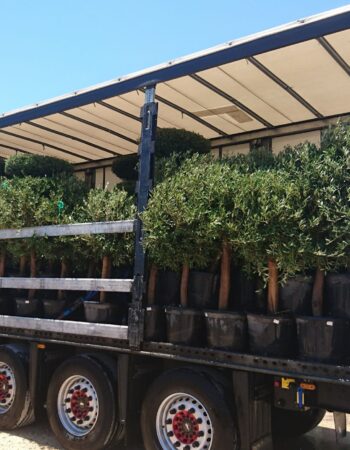
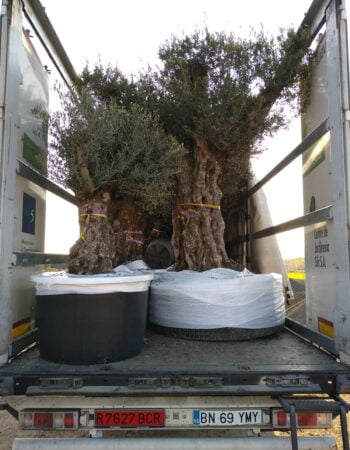
CAREFUL TREE TRANSPORTATION
At Treezom, we take great care in transporting your trees to ensure they arrive in perfect condition. Our expert team uses various methods, depending on the size and volume of the order, to provide safe and efficient delivery. Whether you're ordering a single tree or a bulk order, we guarantee high standards of handling and care throughout the process.
MULTIPLE SHIPPING METHODS
- Truck Delivery: Ideal for local or regional deliveries, ensuring a smooth and timely shipment of your trees directly to your location.
- Sea Containers (20’ or 40’): Perfect for larger orders or international shipping. Our sea containers are equipped to handle bulk shipments with optimal protection.
- Other Customized Solutions: Depending on the size and nature of your order, we can offer tailored shipping methods to meet your specific needs.
No matter the shipping method, we use specialized packaging and handling procedures to protect the trees during transit, ensuring they arrive healthy and ready for planting.
Below, you’ll find key tips tailored to this species’ requirements. Whether you’re new to plant care or have plenty of experience, these guidelines are here to support you in keeping your green companion healthy and vibrant.
- Planting:
- Choose a location with full sun exposure. Agave ovatifolia thrives in bright, direct sunlight.
- Plant in well-draining soil, such as a cactus or succulent mix, with added sand or gravel to improve drainage.
- For container planting, select a pot with sufficient drainage holes and a well-draining soil mix.
- Watering:
- Water sparingly, allowing the soil to dry out completely between waterings. Agave ovatifolia is drought-tolerant but benefits from occasional watering during the growing season.
- Reduce watering in the fall and winter when the plant’s growth slows down.
- Avoid waterlogged soil to prevent root rot.
- Pruning:
- Pruning is typically not necessary. Remove any dead or damaged leaves with a sharp, sterile knife or pruning shears.
- Handle with care to avoid injury from the sharp terminal spine.
- Fertilizing:
- Fertilize lightly during the growing season with a balanced, slow-release fertilizer or a cactus-specific fertilizer.
- Apply fertilizer once or twice in spring and summer.
- Avoid fertilizing during the winter months.
- Pest and Disease Control:
- Agave ovatifolia is generally pest-resistant but may occasionally attract mealybugs or scale insects.
- Treat infestations with insecticidal soap or neem oil as needed.
- Ensure good air circulation around the plant and avoid overwatering to prevent fungal diseases and rot.
*This information is provided for informational purposes only. For more detailed care, please consult a professional Gardener or Arborist.











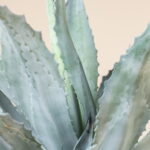
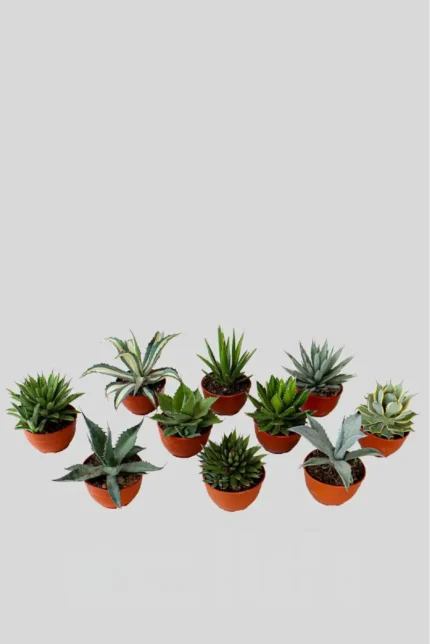
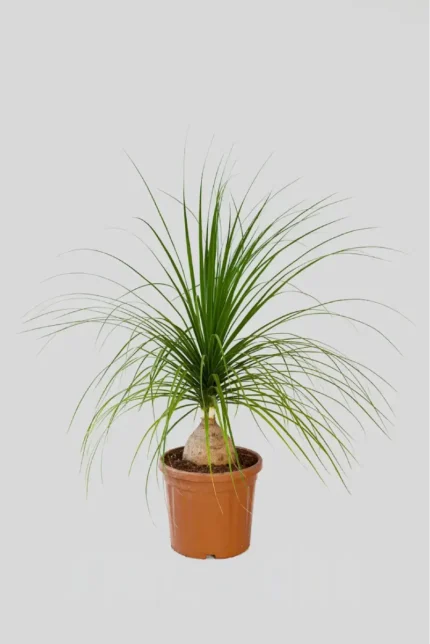



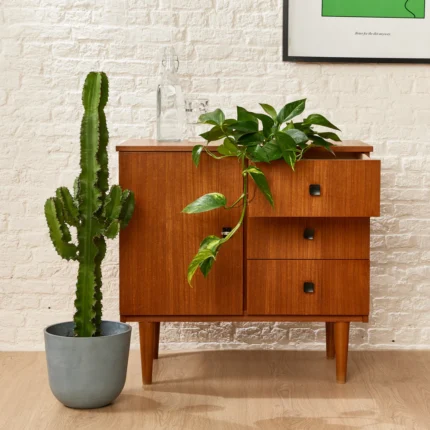

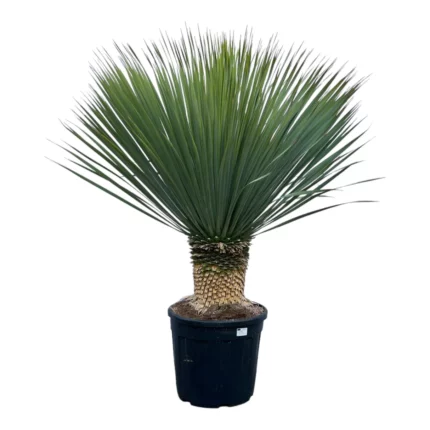






 Single Tree
Single Tree
Valoraciones
No hay valoraciones aún.